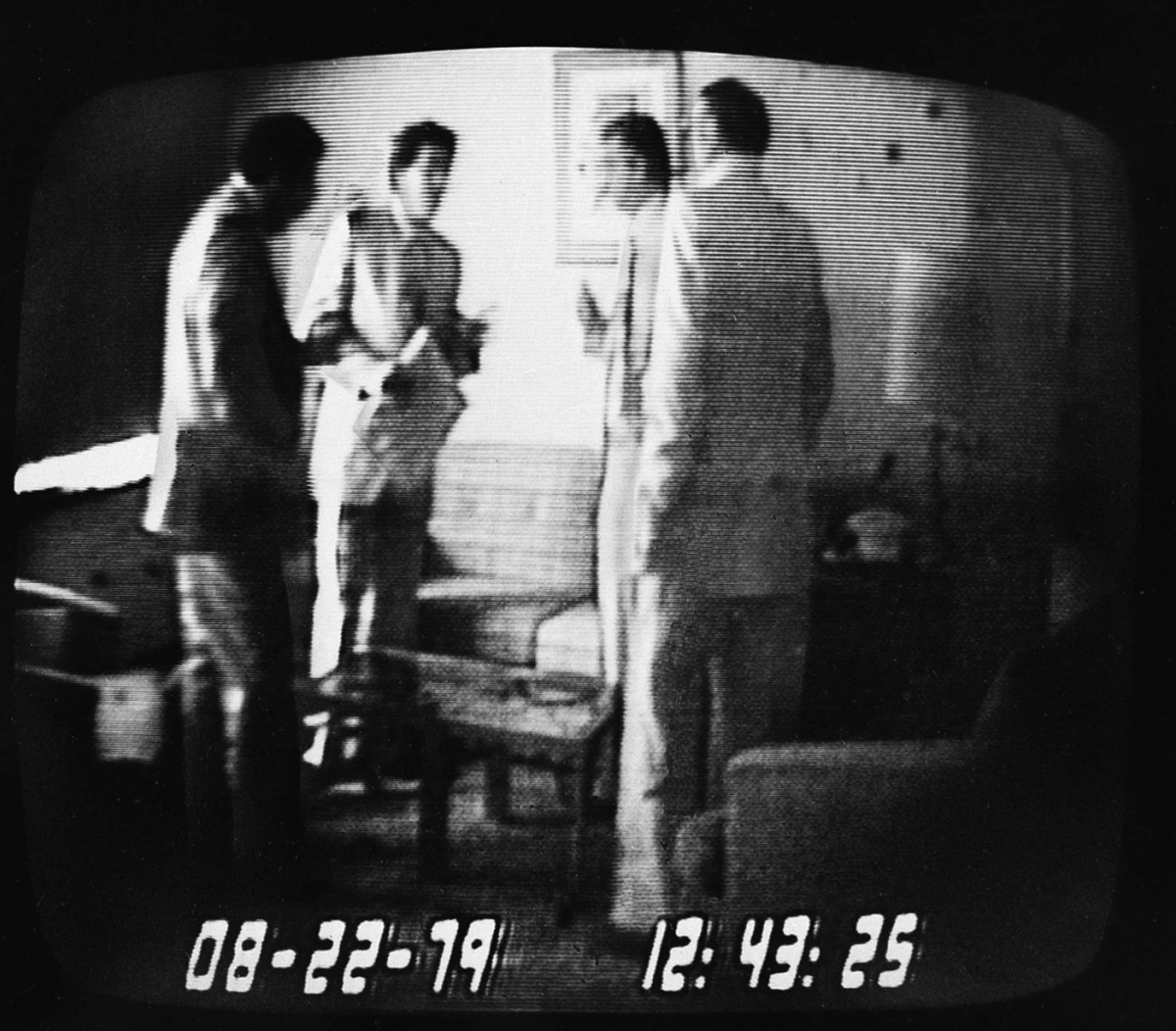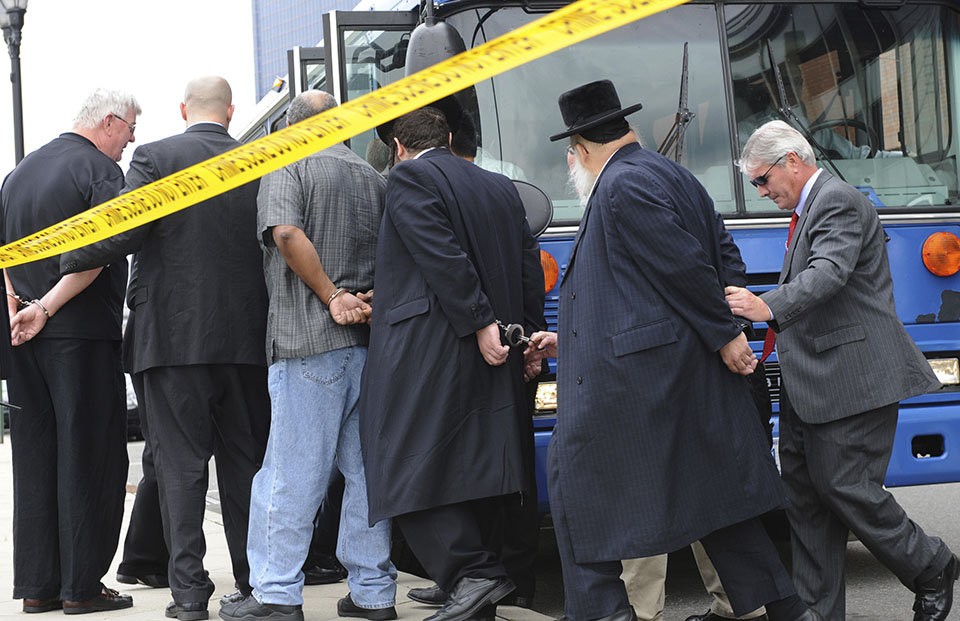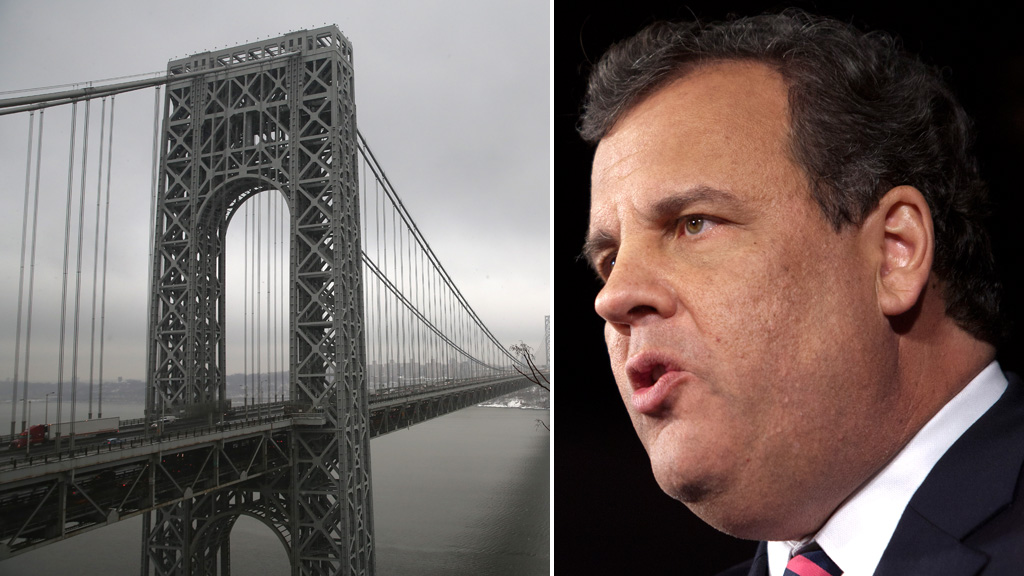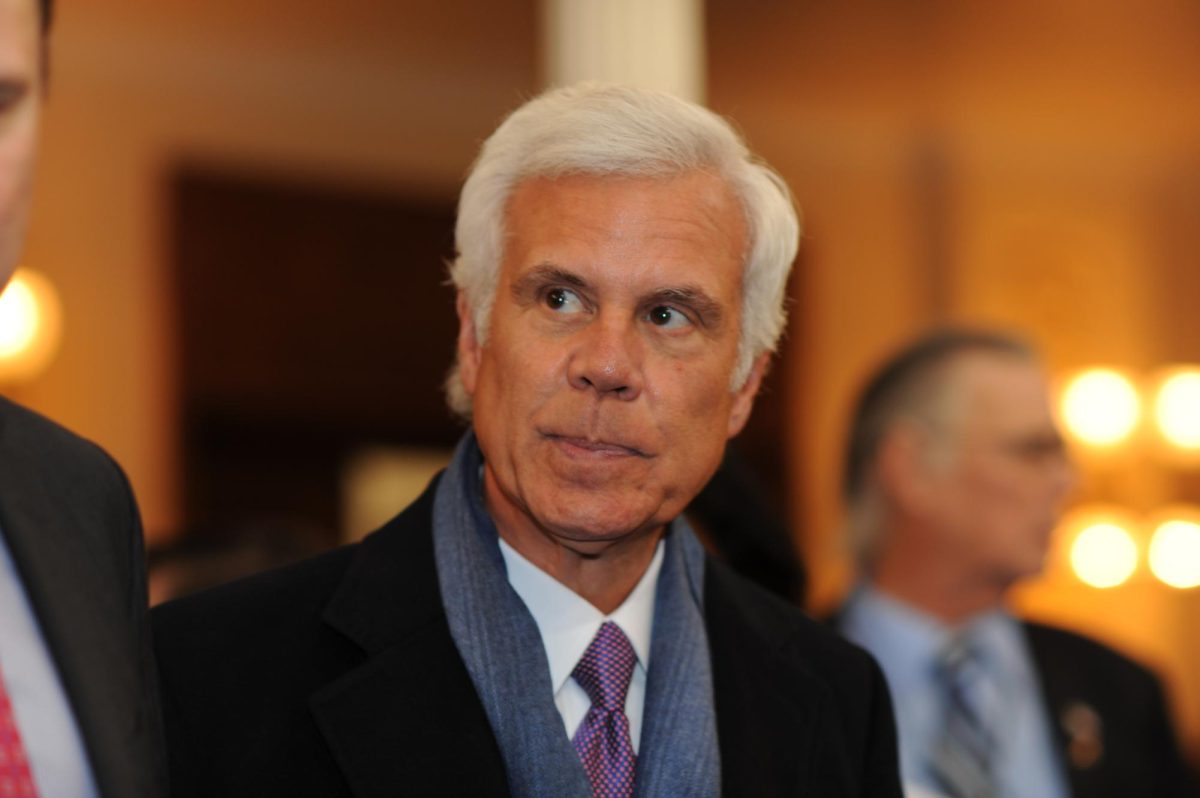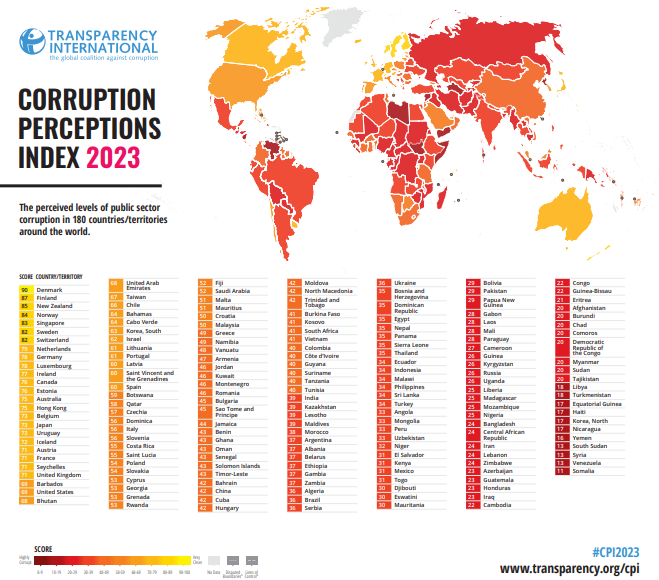Garden State scandals: uncovering a history of corruption
To fully understand how New Jersey fell victim to its extensive system of corruption, we must first return to an example from the past. From 1978 to 1980, agents of the Federal Bureau of Investigation (FBI) went undercover as part of a sting operation that targeted U.S. officials whom they suspected of engaging in several forms of political corruption. The two-year investigation led to the arrests and convictions of one senator, six representatives and multiple local officials who were charged with varying types of bribery, extortion and conspiracy.
Initially, the investigation did not focus on political corruption, but rather began as an effort to weed out an underground network of criminals dealing in stolen art along with other sorts of white-collar crimes — nonviolent crimes like money laundering or embezzlement that revolve around exploitation and deceit for personal gain. The FBI enlisted the help of Melvin Weinberg, a convicted con artist who had been sentenced to three years in prison for real-estate fraud, but was promised probationary privileges and a monthly stipend if he assisted the FBI in exposing these criminals.
As a result, Weinberg began the investigation in July 1978 by posing as a representative for a fictitious Arab company — Abdul Enterprises, thus the name Ab(dul)scam — which he used to approach suspected criminals to supposedly invest oil money in valuable pieces of stolen art. When the FBI’s efforts allowed them to successfully recover $1 million in stolen artwork, their focus switched from stolen artwork to counterfeit stocks and bonds, in which they also saw success with the prevention of more than $600 million worth of fraudulent security sales.
It was in December 1978 that the focus of the Abscam investigations shifted entirely, when Weinberg and the FBI met with Angelo Errichetti, a state senator and the mayor of Camden, New Jersey, who promised to “deliver Atlantic City” for them and ensure the approval of a casino gambling license for the company in exchange for $400,000. Errichetti also put the undercover agents in contact with several other politicians and officials who he believed would accept bribes for similar deals. Realizing the scale of this corruption, the FBI expanded their investigation and recorded several meetings with U.S. officials at luxurious hotels in which undercover agents — dressed as Arab sheiks or employees of Abdul Enterprises — offered cash bribes in exchange for political favors.
Among the most notable officials who were videotaped accepting bribes were New Jersey Senator Harrison A. Williams and Representative Frank Thompson, who both accepted bribes to expedite the Arab immigration process. In return, Williams was set to receive an 18% share in a Virginia titanium mine that would have profited him roughly $12.6 million. Thompson, on the other hand, had accepted a $50,000 cash bribe, similar to many of the representatives from other states like Pennsylvania and New York.
Ultimately, the Abscam investigations culminated in February 1980, when information regarding the investigation leaked to the press, leading to the trials of numerous officials at varying levels of the state and federal government. Williams and Thompson served two years in prison and Errichetti served three despite their appeals that argued the FBI had entrapped them and that they would not have engaged in such corruption without the enticement. Furthermore, Senate and Congressional committee meetings resulted in the resignations or expulsions of the majority of the officials involved.
Among the most significant implications of Abscam were the revisions that Congress made to ensure that the FBI’s undercover operations would avoid potential accusations of entrapment. Seemingly much more concerned about the damage to Congress’ reputation than the corruption itself, legislative assemblies along with U.S. Attorney General Benjamin Civiletti formalized agency procedures and regulated strict supervision for all similar undercover investigations in the future.
With the resignations and expulsions of so many officials, the Abscam scandal left a massive political power vacuum resulting in the appointment of an assortment of new officials, including some who would have incredibly impactful careers that they may not have had without the abundance of open positions after Abscam. Frank Lautenberg, for example, was elected to replace Williams’ position in the Senate and contributed to several projects and pieces of legislation that have had lasting effects even decades later. Lautenberg’s advocacy for public transportation and mass transit projects have since generated billions of dollars in revenue for New Jersey. Furthermore, the uniform national drinking age of 21 and the legal blood-alcohol level of 0.08% for drivers have remained unchanged nationwide since Lautenberg sponsored the legislation that established these rules in the 1980s. Contrary to the positive effects of Lautenberg’s election, the power vacuum that Errichetti left in Camden, New Jersey allowed Democratic power broker George Norcross — who was indicted in June on counts of racketeering for his criminal fraud enterprise — to rise to power.
Overall, the Abscam scandal was New Jersey’s first significant case of corruption and, in the words of the convicted Senator Williams, it “permanently cemented the perception of New Jersey as a hotbed of corruption.” Although New Jersey had past cases of corruption, Abscam’s sheer publicity escalated the national standard of corruption in New Jersey tenfold and set the stage for political corruption in the decades that followed.
Operation Bid Rig, a three-phase operation by the Federal Bureau of Investigations (FBI) from 2002-2014, exposed wide scale corruption in New Jersey politics including a complex web of bribes, money laundering and even trafficking of human organs. Although the initial investigation focused on small cases of political corruption, the following years allowed the FBI to expand the scope of the investigation, eventually culminating in the third phase of Operation Bid Rig, which saw the arrests of several notable public figures. Each, in some fashion, came to symbolize New Jersey’s corrosive culture of corruption and sparked a fair amount of public outrage, but also reformist efforts.
The first phase of Operation Bid Rig became public in 2002 when former Ocean Township Mayor Terrance D. Weldon pled guilty to multiple counts of extortion to influence local building projects. As his five-year prison sentence revealed, he had extorted more than $70,000 in bribes from three developers. Although this initial investigation only implicated a small ring of corruption, it paved the way for the FBI to uncover far more significant cases of corruption across the Monmouth and Ocean counties.
Operation Bid Rig’s second phase emerged in 2003-2004 and began when an FBI informant took on the role of Robert “Duke” Steffer, a developer who approached officials attempting to bribe them in exchange for favors regarding his company’s projects. This investigation resulted in the arrests of 12 public officials including three mayors and several other miscellaneous councilmen and officials. The strategy that the FBI used — approaching officials as false businessmen offering bribes — generated controversy in regard to whether or not it should be considered entrapment. Many of the implicated officials argued that the FBI purposefully tricked them into taking bribes that they would not have if the situation had been different, leaving the boundaries unclear as to what strategies the FBI was legally allowed to employ.
The third and most notable phase of Operation Bid Rig had its genesis in 2006 when Solomon Dwek, a developer, was arrested in an attempt to deposit two phony checks for $50 million. Facing indictment, Dwek became an FBI informant, playing the role of businessman David Esenbach looking to pay bribes for political favors. He allowed the FBI to track a statewide network of influence peddling that led to 44 arrests, along with allegations lodged against a number of politicians, public officials and even religious leaders.
Before the more glaring arrests of three New Jersey politicians, Dwek’s investigation revealed a scheme involving multi-million dollar money laundering networks among the rabbis of Syrian Jewish communities along the Jersey shore. Dwek reportedly approached rabbis claiming to have gone bankrupt, and was later provided with over $3 million in laundered funds that had come directly from Israel. Additionally, Dwek uncovered an international organ trafficking ring — the first ever recorded in the U.S. — when he approached an experienced organ smuggler, Levy Izhak Rosenbaum, pretending to solicit a kidney on behalf of someone. Eventually, the investigation led Dwek and the FBI to approach officials who had been politically involved in these money laundering and organ trafficking networks, steering the investigation toward political corruption.
Perhaps the most recognizable figure caught up in the scandal was the newly elected Mayor of Hoboken, Peter Cammarano. According to the investigation, Cammarano took $25,000 in bribes from Dwek in exchange for speeding up development projects. Although Cammarano did not face any initial criminal charges, he was later indicted on charges of extortion and sent to a federal prison for two years.
Assemblyman Daniel Van Pelt, who had a role in the state’s environmental oversight, was accused of accepting a $10,000 bribe from Dwek to help secure permits for real estate developments. Van Pelt’s guilty sentence brought to light the susceptibility of regulating bodies to corruption and, as such, there were questions of the legitimacy of New Jersey’s environmental law. He was imprisoned for 41 months, further cementing an image of untrustworthiness in the people’s minds.
Another politician to be involved in this operation was Dennis Elwell, who was a long-serving mayor of Secaucus. Elwell was credited with leading Secaucus through many transitions with grace, making his arrest a great surprise. He took $10,000 in cash from Dwek in exchange for the promise of political favors with development projects. Unlike Cammarano and Van Pelt, Elwell fought the charges based on entrapment by Dwek and the FBI. Regardless, he was found guilty of taking a bribe and was sentenced to 30 months of imprisonment, which promptly ended his political career. Some of the involved politicians and public figures were prosecuted by none other than Chris Christie, an attorney at the time who would later be heavily alleged to have engaged in the Bridgegate scandal during his time as New Jersey’s governor.
Operation Bid Rig had greater ramifications than just the ones faced by people directly involved: the scandal hurt the public’s confidence in their elected officials and reaffirmed beliefs that New Jersey was a grub for political corruption. Following this wave of corruption, New Jersey responded with reforms to ensure greater transparency and accountability. They called for tougher oversight of campaign finance and more serious punishment for public officials convicted of corruption. Operation Bid Rig was a case in New Jersey that exemplified the importance of caution with money and trust in the government. It serves as a reminder that government officials must remain honest and that citizens must hold them accountable if they aren’t.
What happens when political grudges spill out onto the highway? In 2013, New Jersey residents found out the hard way.
On September 9, 2013, two out of three lanes of the George Washington Bridge — one of the busiest bridges worldwide — were abruptly shut down upon reaching Manhattan. Traffic jams trapped first responders, caused hours of delays for commuters and school buses and overall severely disrupted everyday life for residents of the local Fort Lee community.
But, according to speculation, this was more than an unfortunate accident. Supposedly, the administration of former New Jersey Governor Chris Christie engaged in this scandal as a way to enact revenge.
The closure was initially explained as part of a “traffic review,” but subsequent investigations exposed the true cause for the closures. They were ordered by David Wildstein, a confidante of Christie and the governor’s appointee to the Port Authority (which oversees the daily operation of the George Washington Bridge), and Bill Baroni, Deputy Executive Director of the Port Authority of New York and New Jersey.
The issue began when Fort Lee Mayor Mark Sokolich declined to support Christie’s 2013 reelection bid. Christie’s employees allegedly decided to close off a majority of the George Washington Bridge as a way to “get back at” the mayor. Bridget Anne Kelly, who served as deputy chief of staff to Governor Christie, sent a now-infamous email to Wildstein, stating, “Time for some traffic problems in Fort Lee.”
Over the following four days, heavy traffic ensued. This led to school buses being late, decreased profits for local businesses and long delays in emergency services, causing extreme frustration for a vast majority of the community. First responders were often unable to reach patients in time, making the aftermath of the shutdown not just frustrating, but dangerous.
“This crosses a line that is rarely crossed: People’s lives were in danger,” said New Jersey state senator Ray Lesniak in an interview with CNN.
Ultimately, Baroni and Kelly were convicted of conspiracy and fraud; however, the U.S. Supreme Court overturned the convictions in 2020. Even though the Court acknowledged that the authorities acted abusively, they determined that their actions did not meet the legal requirements for federal fraud. Throughout the ordeal, Christie maintained that he had no prior awareness of the shutdowns and was therefore not prosecuted.
However, many people found it hard to believe that a governor who was known for being “hands-on” could have been blatantly oblivious to such a big upheaval. When questioned by reporters about the communications between his staff during the incident, he referred to the questions as “ridiculous.”
Both Christie’s administration and the people of Fort Lee experienced long-term effects from the Bridgegate affair. In a political battle in which they had no role, homeowners, business proprietors and emergency workers all had to address the fallout. Meanwhile, Christie’s 2016 campaign for the Republican presidential nomination also encountered difficulties as the specter of Bridgegate hung over his reputation. In the end, the Bridgegate affair became an image of political corruption and caused an erosion in public faith in the government as a whole.

Every child grows up hearing tales of wealth and treasure, prompting ludicrous dreams of stumbling upon chests filled with gold coins and gold bars. After all, who wouldn’t want to be the next Scrooge McDuck? Like every dream, though, you wake up, and there is no newfound wealth. There are no gold coins or gold bars. For former United States Sen. Robert Menendez (D-NJ), however, obtaining gold bars and accumulating profound wealth wasn’t just a dream; it was a reality — but at what expense?
In September 2023, Menendez — caught gold-handed — was accused of accepting bribes, including cash, gold bars and a Mercedes-Benz. As the investigation advanced, Menendez, while serving as chairman of the Senate Foreign Relations Committee, was accused of further bribery and extortion by acting as Egypt’s foreign agent and assisting Qatar’s government. Prosecutors alleged that he had used his influence to expedite millions of dollars in military aid to Egypt and ensure the enrichment and protection of his political allies from criminal investigations.
The emergence of these felonies prompted Democrats including Chuck Schumer, senate majority leader; Corey Booker, New Jersey junior senator; and Andy Kim, New Jersey congressional representative and senator vacancy frontrunner to urge Menendez to resign.
A raid of Menendez’s Englewood Cliffs home by the Federal Bureau of Investigations (FBI) uncovered nearly $150,000 in gold bars and $480,000 in cash stuffed into clothes, along with a Mercedes-Benz gifted to Nadine Menendez, his wife. When Menendez was found guilty on all 16 charges, he still continued to spew innocent rhetoric and, instead, scapegoated his wife. Ms. Menendez, whose trial has been postponed indefinitely as she recovers from breast cancer surgery, was blamed by her husband for keeping him in the dark while secretly handling the gold bar transactions. In the meantime, the former senator faces the possibility of decades in prison based on the outcome of his Jan. 29, 2025 sentencing.
This was not the first time that Menendez was tried for political corruption, though. In 2017, an affluent Florida eye doctor provided Menendez with campaign funds and luxurious vacations in exchange for political favors, but the case, which tried Menedez’s not-guilty plea for 18 counts of fraud and bribery, ended in a hung jury.
If a few gold bars and stacks of cash allegedly tucked into his clothes and closet are any indication, it’s as though Menendez saw his mistrial as an invitation to embrace another round. Indeed, retaining his seat in the Senate and facing minimal scrutiny set a poor precedent. For Menendez, the 2017 case, if anything, seemed to prove that he could get away with far worse. Thus, it is no surprise that he felt obliged to satisfy his corruption itch by doubling down and making his public service as lucrative as possible.
With Menendez attempting to get away with corruption once again, the question emerges: is our system of government broken, or is it doing exactly what it was designed to do — protect the powerful and wealthy? We have a government that can immediately sniff out tax evasion among ordinary citizens but, somehow, overlook gold bars sitting in Menendez’s coat closet for years. How many more instances of political corruption will it take before the public’s trust in our government — in New Jersey and the U.S. as a whole — dissolves entirely?
Nevertheless, Menendez’s instances of political corruption through bribery, extortion and acting as a foreign agent emphasize the flaws within our government. How much longer will it take before our government resorts back to the same extremities of political corruption that existed during the Gilded Age? How much longer will it take before our leaders acknowledge that their corrupt decisions are a threat to public trust? How much longer will it take before political leaders face real consequences for corruption, instead of being handed mistrials and second chances that simply reinforce their immunity? How much longer will it take before the government finally lives up to the ideals it claims to represent — a government by the people, for the people and accountable to the people?
“F**k ‘em. F**k ‘em. Just do it.”
In a 111-page indictment, Democratic power broker George E. Norcross III has been charged with racketeering. These pages are filled with accusations of extortion and political corruption — along with snippets of conversations regarding the illicit schemes that Norcross and his co-defendants masterminded.
Although Norcross has never held elected office, he has wielded vast political power in New Jersey for decades. As the political boss of the “Democratic machine” in South Jersey, he held significant sway over elections, fundraising and the political careers of Democrats. Between 1989 and 1995, Norcross served as the chairman of Camden County’s Democratic Association, continuously staying in control of the organization since then. Norcross held alliances with governors of both parties including Republican Chris Christie, whose administration worked with him to design the tax credit system that Norcross is charged with in the indictment.
New Jersey Attorney General Matthew Platkin alleged that “the Norcross Enterprise used its power and influence over government officials to craft legislation tailored to serve the interests of the enterprise” for at least 12 years. Described as a “criminal enterprise” by Platkin, the Norcross Enterprise obtained property and development rights through coercion, extortion and other criminal acts. Norcross, along with his brother Phillip A. Norcross, former Camden Mayor Dana Redd, William M. Tambussi, Sidney R. Brown and John J. O’Donnell leveraged political clout to buy waterfront properties in Camden and shore up millions in tax credits.
When a nonprofit organization looked into purchasing the L3 complex (the former Camden Aerospace Center), the Camden mayor’s office directed the non-profit to meet with Phillip Norcross. The developer selected by Norcross resulted in a profit of around $125,000 for the nonprofit, although the expected profit was millions. On the other hand, the same developer obtained the L3 complex at a discounted price only available to the nonprofit. Cooper Health, where George Norcross is the executive chairman of the board of trustees, ultimately gained ownership of the building.
The indictment also accuses Norcross of using intimidation and threats to force a private developer to give up property rights to build Triad1828 and 11 Cooper, both buildings on the Camden Waterfront. Norcross reportedly threatened the developer, saying that he would “f**k [him] up, like [he’s] never been f**ked up before.”
The six defendants in this indictment have been charged with first degree racketeering. The dismantlement of one of America’s most corrupt political machines is a significant move toward eliminating corruption in New Jersey’s government, and the indictment of Norcross serves as a reminder of the damage caused by the officials who abuse their power.
In Star Wars, Anakin Skywalker believes that the only method to “bring balance” is through the dark side, using authority to control the galaxy, from his perspective, for the greater good. Similar to Skywalker — who, ironically, swears to protect all from the very evil that he becomes — politicians take office with promises of improving societal issues, and, sometimes, these politicians become the very problem rather than a part of a solution. Robert Menendez, a former United States senator; Chris Christie, the former New Jersey governor; and George Norcross, a Democratic power broker have all recently garnered corruption accusations and failed, to differing extents, to properly balance their self-interests with morality.
New Jersey politics aren’t all dark, though. Current New Jersey Sen. James Beach, former New Jersey Lieutenant Gov. Kimberly Guadagno and current U.S. Congressman Andy Kim have all navigated through the political realm without involving themselves in corrupt affairs. By steering clear of corruption, avoiding the temptations politicians may encounter and implementing solutions that provide accountability, these three hope to restore the public’s perception of political figures. Eastside, in three separate interviews, discusses the power, price and pompousness of political corruption in New Jersey and across the U.S. with Beach, Guadagno and Kim.
Indeed, New Jersey, with a long history of political corruption, has accumulated a shattered reputation for having a distrustful government. To what extent, though, has this reputation worsened?
“The political atmosphere that I grew up in, I prefer to think, had a lot of checks and balances. I got into politics, I thought, for the right reasons, but what you’re seeing in politics right now is pretty ugly. It’s a shame because it kind of scares you away,” said Guadagno.
With such sentiments, it can be difficult for New Jersey citizens to fully depend on their government. In fact, when Menendez received his indictment, many were unsurprised by the scandal’s emergence, further embracing their skepticism of the government.
“I remember when I talked to my neighbor the day that Sen. Menendez got indicted, and I remember asking him, ‘What do you think of this indictment of the senator?’ He was like, ‘That’s New Jersey,’ which is why I very much hope that we can start a new era of politics where we can move away from that corruption and show that we can do something impactful,” said Kim.
Amid increasing citizen distrust, it’s extremely important to identify the root of its causes and determine solutions. Doing so can be difficult when the politicians who hold the power to force greater political transparency refuse since they’re the ones typically benefiting from the current system.
“Money [tends] to [dictate] so many politician’s decisions, and we have to be more transparent about this,” said Beach. “There are so many cameras to the point where it’s hard to get away with [any questionable act], but, there are [politicians] who are not going to [voluntarily give up] the power and control that they have because they don’t want anyone catching them.”
What can we do, then, if too many entrenched politicians act in the best interest of themselves rather than for the people?
“We need to be willing to call [political corruption] out. You know, for me, that means that I was willing to stand up, even to leaders in my own party. There are still some people trying to stop us from moving in the right direction. There are challenges and problems that we face with the county lines and campaign finance issues. … I think we have to make sure that we’re continuing to try to reform, and I think it’s important to have people in office who have a reform agenda, who recognize that we need to be able to change this trajectory,” said Kim.
“Recently, it’s kind of sad to see that [New Jersey] has pulled back on some of the transparency provisions that were provided for in some of these new laws. I wasn’t in office when they cut the legs out from under ELEC [Election Law Enforcement Commission] and made it impossible to have any teeth, so, right now, I would want to rewrite the ELEC laws and put them back where they were because we went backward instead of forward,” said Guadagno.
With the election approaching, gerrymandering — an illegal tactic where political parties manipulate district boundaries to gain an electoral advantage, thus choosing their voters instead of allowing voters to choose their representatives — highlights one of the most concerning acts of political corruption. Kim, at the federal level, advocates for passing legislation ending gerrymandering and requiring independent commissions.
“In so many states around the country, people in political office or in the political world are, basically, able to draw whatever maps that they want. That’s really skewing our policies, and that’s dangerous. It’s certainly one of the primary issues that needs to be addressed because it can cause a snowball effect on the political party and the people with the power,” said Kim.
These problems extend beyond simply gerrymandering, however. In fact, Guadagno believes that political party polarization and greed act as the most significant incentives, particularly in New Jersey, to embrace corruption.
“There are a lot of different kinds of public corruption, but some would argue that the political machine itself is one of the main drivers of that corruption because once you affiliate yourself with a certain party, and you are in control, then there aren’t many people looking over your shoulder and checking what your [responsibility] is. … The second [factor] is that [New Jersey is] pretty close to some of the wealthiest people in the world in New York City, so you can see that the temptation to take money from the rich and give it to yourself is almost sometimes too great to pass up for some politicians,” said Guadagno.
Of course, several restrictions and advancements are in place to prevent political corruption. With the rise in technology and Artificial Intelligence (AI), it appears increasingly difficult to avoid corrupt transactions going unnoticed.
“You’re being watched like a hawk. … [AI] is going to be a pretty [significant] change, and everything is going to be all over social media. So, in terms of cameras and videotapes, the government is pretty transparent, but, somehow, some people, at first, are slipping through the cracks,” said Beach.
“In instances of corruption, you’d have to ship your money offshore; you’d have to be in crypto. There’s a paper trail, or now an electronic trail, of just about all the money that you get as a politician. … When you look at Sen. Menendez, the FBI agents followed his paper trail and literally walked into the bedroom and stumbled upon gold bars. It shows how far some surveillance can really go,” said Guadagno.
Nevertheless, corruption still remains prevalent, and surveillance, by no means, acts as the final solution to ending such problems. Thus, beyond attempting to address corruption through cameras and legislation, the community can contribute, too.
“Show up and ask questions. Go to your school board meetings. Go to your town meetings. If you do not show up, then, you’re absolutely letting people walk through the door of corruption. I mean, it only takes one person to go to a meeting every day and start asking hard questions, and that tempers politicians. [The community] can change outcomes, and people don’t show up enough, and it’s hard in New Jersey because you have 21 counties and a ton of school districts, so it’s hard to show up to everything, but you have to vote, and you have to show up, and you have to read about your candidates,” said Guadagno.
With 14 electoral votes in the upcoming 2024 election, New Jersey will play a role in choosing which presidential candidate they believe will best address current national and international conflicts while, simultaneously, abiding by democracy and protecting the basic rights of all U.S. citizens. Perhaps even more important, though, are the New Jersey local and legislative branch elections.
Kim, running for Menendez’s vacant Senate position, hopes to avoid the corruption pitfalls of his predecessor by continuing to advocate for legislative policies to combat such corruption and by appeasing the common citizen’s needs.
“I’m actively pushing legislation to make changes. I don’t take corporate tax money to make sure that we don’t have the perception that I’m being influenced by special interests. … I do, for instance, [host] town halls; I’ve done now 80 town halls, and that allows me to just anchor myself in the concerns of regular people and not get caught up with just the political elite and economic elite of this country. … Those are actions that I’m very much abiding by and continuing to engage on. … I think the more that I can do that, the more I can build this sense that we have a new era of politics going forward,” said Kim.
Ultimately, as we uncover New Jersey’s vast history of political scandals and hear from Beach, Guadagno and Kim — the voices of those who’ve witnessed corruption firsthand — the true cost of a corrupt mindset emerges. It’s concerning to observe the lengths to which numerous politicians would go in an attempt to satisfy their desires. As the public’s trust in our government dissolves gradually, we’re left to ask: is any wealth worth such a hefty price?
Although the number of corruption cases in New Jersey may make the situation appear dire, the reality is that corruption in New Jersey — and the U.S. as a whole — does not compare to the rampant corruption that plagues countries especially throughout Africa, South America and certain areas of Asia and the Middle East. In fact, a corruption index by Transparency International in 2023 showed the U.S. as the 24th least corrupt country in the world.
One factor that contributes to America’s relative cleanliness is the significant rise in legal reform over the past couple decades; hundreds of bills have been introduced and passed in Congress to establish heavier regulations on unlawful gratuities and harsher penalties for officials convicted of corruption. For example, New Jersey specifically passed bills from 2007-2019 to ensure that convicted officials will forfeit retirement benefits or pensions and face mandatory imprisonment as punishment for convictions relating to corruption.
Furthermore, the corruption in America lacks the pervasive features of corruption in other countries across the world. In these deeply corrupt countries, all levels of government maintain a system of corruption ranging from driving test administrators to police officers to high-ranking officials. A separate study also by Transparency International provided specific accounts from citizens in Hungary, Yemen and Guatemala who had experienced firsthand the corruption that pervades their governments. In Hungary, a man was told that he could only pass his driving test by bribing the examiner; in Yemen, a man had his shop robbed and was only met by police officers who refused to investigate without bribes; in Guatemala, a local mayor won an election solely because he had paid neighboring communities to vote for him. This corrosive pattern of corruption infects dozens of countries across the world, with most of them resulting from poor governance or equally poisoned justice systems.
Many of these corrupt nations suffer from inadequate or oppressive governments that practically institutionalize corruption through minimal inspection of high-ranking officials, which ultimately spills over to even the lowest levels of government. Without strict regulations in place to ensure accountability and transparency, many politicians fall victim to greed, consequently placing their own interests before the interests of the people they serve.
Additionally, in many of the most corrupt countries throughout Africa, South America and the Middle East, natural resources like gold or oil make it substantially easier for a few wealthy individuals to exploit their nations’ economies. According to studies by the Chr. Michelsen Institute, patterns of corruption over the years have shown political influence over gold mines or oil reserves as a common method of corruption. However, this method of corruption heavily deprives the communities in those areas of funding to support themselves due to the lavish lifestyles of their corrupt officials who hoard natural resources as a means of expanding political influence.
In general, the constant flow of corruption cases in the media can be overwhelming and often paints a tremendously exaggerated picture of corruption in New Jersey and the U.S. as a whole. However, in actuality, America’s efforts to combat corruption have proven to significantly decrease corruption rates across the country. If anything, the reports of convicted officials serve as proof of substantial progress in preventing the spread of this corruption. Although systems of corruption still linger throughout American politics and society, reform and advancements in anti-corruption regulations have offered a glimpse of hope that amidst the pervasive corruption of the world, these systems can and will evolve.








